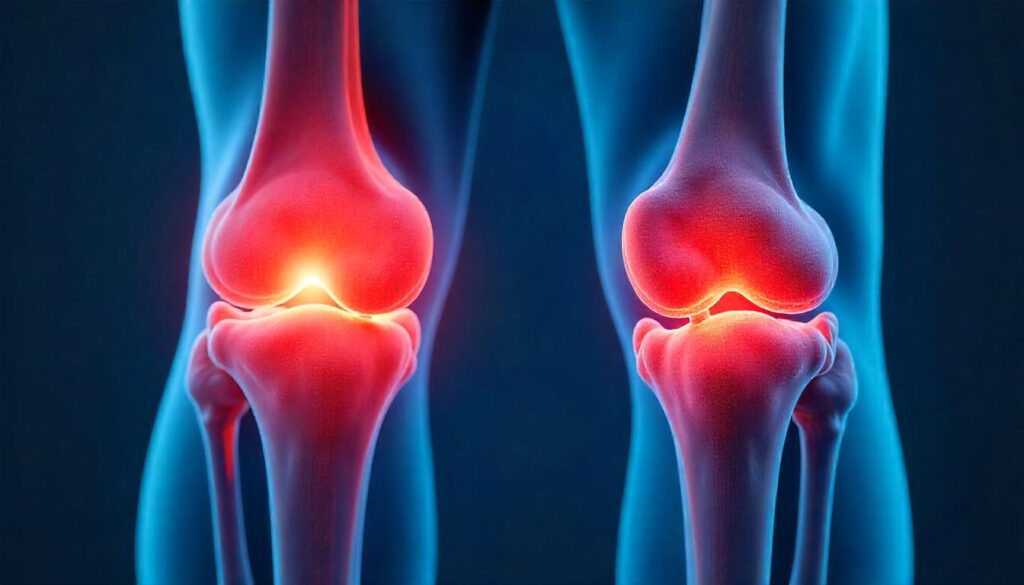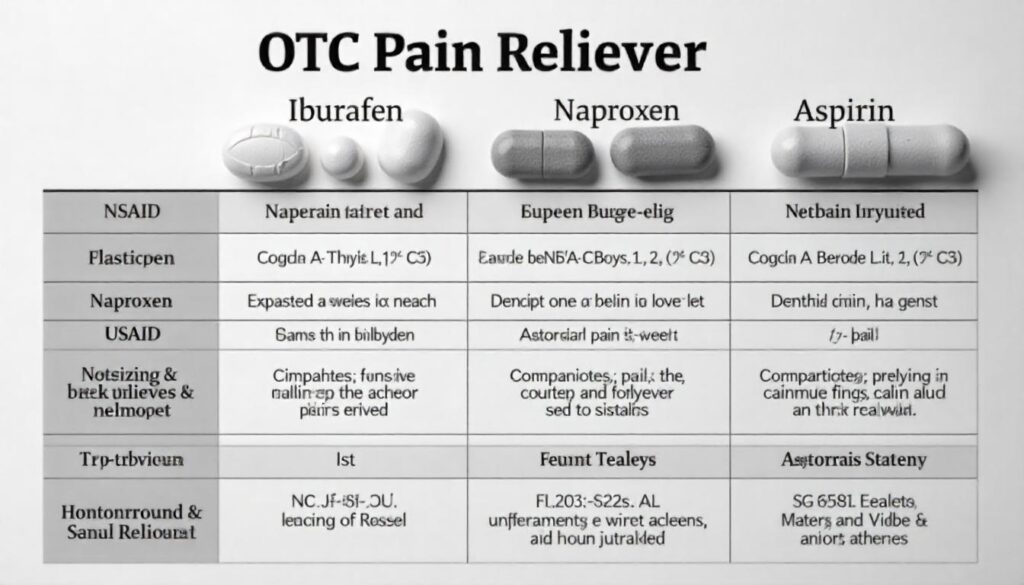Joint pain can make everyday activities challenging, whether it’s due to arthritis, an injury, or general wear and tear. Over time, untreated joint discomfort can lead to reduced mobility, stiffness, and overall quality of life. Choosing the best over-the-counter (OTC) joint pain reliever can help manage discomfort effectively. Should you opt for NSAIDs to reduce inflammation or acetaminophen for general pain relief? Are topical treatments a better alternative?

This guide breaks down the best OTC options based on your specific needs, potential side effects, and medical conditions. By the end, you’ll have a clear understanding of which pain reliever is right for you and how to use it safely for long-term joint health.
Understanding Your Joint Pain
Before selecting a pain reliever, it’s essential to identify the nature of the pain. Joint pain varies based on the underlying cause and can be categorized into inflammatory and non-inflammatory pain.
Inflammatory Pain
Inflammatory joint pain is often accompanied by redness, swelling, and warmth in the affected area. Common conditions that cause inflammation include:
- Rheumatoid arthritis: An autoimmune disease that causes chronic inflammation in the joints.
- Tendonitis: Inflammation of the tendons due to overuse or injury.
- Bursitis: Inflammation of the fluid-filled sacs (bursae) that cushion the joints.
For inflammatory pain, nonsteroidal anti-inflammatory drugs (NSAIDs) are typically the best option as they reduce both pain and inflammation, making movement more comfortable and reducing stiffness.
Non-Inflammatory Pain
If the pain is present without significant swelling or redness, it is likely non-inflammatory. This type of pain is common in conditions such as:
- Osteoarthritis: A degenerative joint condition where the cartilage wears down over time.
- Minor joint injuries: Strains, sprains, and overuse injuries that do not involve inflammation.
In these cases, acetaminophen (Tylenol) can help manage pain without affecting inflammation. It works by blocking pain signals in the brain rather than reducing swelling.
Choosing the Right OTC Pain Reliever

NSAIDs for Inflammatory Joint Pain
NSAIDs work by reducing inflammation and providing pain relief. Popular options include:
- Ibuprofen (Advil, Motrin): Effective for reducing inflammation and pain; suitable for short-term use.
- Naproxen Sodium (Aleve): Provides longer-lasting relief compared to ibuprofen, requiring fewer doses per day.
- Aspirin: A milder NSAID that may be useful for occasional joint pain relief.
Considerations:
- NSAIDs may cause stomach irritation; taking them with food or using an enteric-coated version can help.
- Long-term use increases the risk of heart attack or stroke, particularly in those with cardiovascular disease.
- NSAIDs may not be suitable for individuals with kidney disease, ulcers, or bleeding disorders.
Acetaminophen for General Joint Pain
If inflammation is not a significant factor, acetaminophen can be a good alternative.
- Benefits: Targets pain without gastrointestinal side effects.
- Risks: High doses can harm the liver, so it’s crucial not to exceed recommended dosages.
- Best Use: Ideal for individuals who cannot take NSAIDs due to stomach issues or cardiovascular risks.
Key Factors to Consider
Dosage and Frequency
- Always read labels carefully to understand the strength and recommended dosage.
- Avoid exceeding the maximum daily dose to prevent potential health risks.
- For chronic conditions like osteoarthritis, consult a healthcare provider about long-term use.
Potential Side Effects
- NSAIDs: Can cause stomach irritation, ulcers, and increased cardiovascular risk.
- Acetaminophen: Excessive use can lead to liver damage, especially when combined with alcohol.
- Allergic Reactions: Some individuals may experience rashes or breathing difficulties with NSAIDs or acetaminophen.
Medical Conditions
If an individual has pre-existing conditions such as:
- Kidney disease – NSAIDs can impair kidney function over time.
- Heart disease – Certain pain relievers may increase cardiovascular risks.
- Stomach ulcers – NSAIDs can aggravate digestive issues.
- Liver conditions – Acetaminophen should be used with caution.
Consulting a healthcare provider before taking OTC pain relievers is essential in these cases.
Alternative and Complementary Pain Relief Options
Topical Pain Relievers
For localized pain, topical treatments can be beneficial. Options include:
- Menthol-based creams for cooling relief that numbs the affected area.
- Capsaicin creams to reduce pain sensitivity over time by desensitizing nerve receptors.
- Diclofenac gel (a topical NSAID) for reducing localized inflammation with fewer systemic side effects.
Lifestyle Changes for Joint Health

Along with medication, maintaining joint health is crucial.
- Healthy Weight Management: Reducing excess weight relieves pressure on joints, particularly in weight-bearing areas like the knees and hips.
- Exercise: Low-impact activities such as swimming, yoga, and cycling improve flexibility and strengthen muscles that support the joints.
- Dietary Support: Eating an anti-inflammatory diet rich in omega-3 fatty acids, such as fatty fish, flaxseeds, and walnuts, can promote joint health (source).
- Hydration: Staying hydrated helps maintain the lubrication of joints and prevents stiffness.
For those looking for natural alternatives, explore more in this detailed guide: Natural Alternatives to Over-the-Counter Joint Pain Relievers.
When to Consult a Doctor
If OTC options do not provide sufficient relief, or if pain persists for more than a few weeks, seeking medical advice is recommended. A healthcare professional can provide tailored recommendations, including:
- Prescription-strength NSAIDs or pain relievers for more severe pain.
- Physical therapy to improve mobility and strengthen muscles around the joint.
- Corticosteroid injections for long-term relief of severe inflammatory joint pain.
- Surgical interventions such as joint replacement for chronic and severe cases.
Final Thoughts
Selecting the right OTC joint pain reliever involves understanding the type of pain, considering personal health conditions, and evaluating the potential risks and benefits. By making informed choices, individuals can effectively manage joint pain and improve their overall quality of life.
For more details on OTC joint pain relievers, visit Over-the-Counter Joint Pain Relievers.